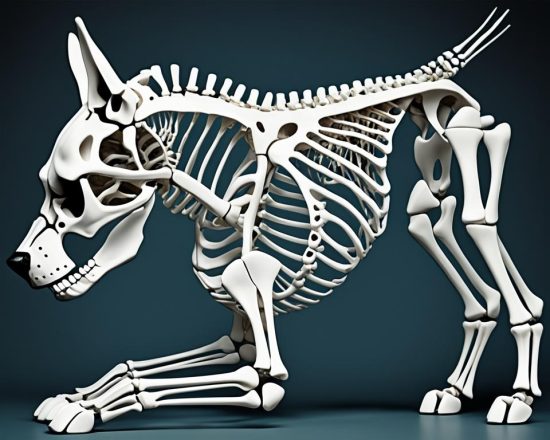Why Does My Dog Have Diarrhea? Causes & Treatments
Discover causes and treatments as we explore the question: why does my dog have diarrhea? Learn to manage your pet’s digestive health effectively.

Did you know that diarrhea is one of the most common digestive issues that dogs experience? In fact, it affects a staggering one out of every three dogs at some point in their lives. As a dog owner, it’s important to understand the causes and treatments of this gastrointestinal problem to ensure the well-being of your furry friend.
Whether it’s a mild bout of acute diarrhea or a chronic condition, several factors can contribute to your dog’s upset stomach. From dietary triggers to stress and environmental changes, multiple elements can impact your dog’s digestive health.
We will see some of the various causes of why my dog have diarrhea and provide valuable insights into effective treatments.
Understanding Diarrhea in Dogs: An Overview

Diarrhea is a common health issue in dogs that can cause concern for pet owners. This section aims to provide you with a general understanding of diarrhea in dogs, including its prevalence and the difference between acute and chronic diarrhea.
How Prevalent is Diarrhea in Canines?
Diarrhea is one of the most frequently reported digestive problems in dogs. It can occur in dogs of all ages, breeds, and sizes. Understanding the prevalence of diarrhea in dogs can help you recognize that you are not alone in dealing with this issue. It is estimated that 15-25% of dogs experience diarrhea at some point in their lives.
The Difference Between Acute and Chronic Diarrhea
It’s important to differentiate between acute and chronic diarrhea in dogs, as they have distinct characteristics and potential causes.
Acute Diarrhea: Acute diarrhea is a short-term condition that typically lasts for a few days or weeks. It often occurs suddenly and is often caused by dietary indiscretion, such as eating spoiled food or ingesting a foreign object.
Chronic Diarrhea: Chronic diarrhea, on the other hand, is a long-term condition that persists for more than three weeks. It can be a sign of an underlying health issue, such as food allergies, gastrointestinal diseases, or systemic illnesses.
By understanding the difference between acute and chronic diarrhea, you can better assess the duration and severity of your dog’s condition, potentially helping you identify the appropriate steps to take for their well-being.
| Type of Diarrhea | Duration | Potential Causes |
|---|---|---|
| Acute Diarrhea | Few days to weeks | Dietary indiscretion, infections, stress |
| Chronic Diarrhea | More than three weeks | Food allergies, gastrointestinal diseases, systemic illnesses |
Why Does My Dog Have Diarrhea? Identifying the Triggers
Understanding the triggers and causes of diarrhea in dogs is crucial for effectively managing their digestive health. There are various factors that can contribute to diarrhea, and identifying them is the first step in finding a solution.
Dietary changes, such as switching to a new food or introducing new treats, can upset your dog’s digestive system and lead to diarrhea. Stress and anxiety can also play a role, as dogs can be sensitive to changes in their environment or routine. Additionally, certain environmental changes, such as moving to a new home or exposure to toxins, can trigger diarrhea in dogs.
Pathogens and parasites, such as Giardia and roundworms, are another common cause of diarrhea in dogs. These microscopic culprits can wreak havoc on your dog’s gastrointestinal system and lead to loose stools.
Medications can also have side effects that include diarrhea. Antibiotics, in particular, are known to disrupt the balance of good bacteria in the gut, resulting in diarrhea. It’s essential to be mindful of the medications your dog is taking and their potential effects on their digestive health.
Furthermore, toxins, whether ingested accidentally or through exposure, can cause diarrhea in dogs. This can include household chemicals, certain plants, and even some human foods that are toxic to dogs, like chocolate or grapes. Lastly, certain chronic conditions, such as inflammatory bowel disease or other intestinal disorders, can lead to chronic diarrhea in dogs. Systemic illnesses, like kidney disease or liver disease, can also affect the digestive system and contribute to diarrhea.

Evaluating Your Dog’s Symptoms: When to Be Concerned
When your dog experiences diarrhea, it’s important to closely monitor their symptoms. While a single episode of loose stool may not be cause for immediate concern, certain symptoms accompanying dog diarrhea could indicate a more serious underlying condition or potential complications.
Common Symptoms Accompanying Diarrhea
While symptoms can vary from dog to dog, there are several common signs that often accompany diarrhea:
Dehydration
Dehydration is a common and serious symptom accompanying diarrhea in dogs. As dogs lose fluids rapidly through frequent, watery stools, their bodies can become dehydrated quickly. Signs of dehydration include dry gums, sunken eyes, lethargy, and a loss of skin elasticity. It’s essential to monitor your dog’s water intake and encourage them to drink small, frequent amounts of water. In severe cases, veterinary intervention may be required to provide intravenous fluids and address the underlying cause of dehydration.
Lack of Appetite
A lack of appetite often accompanies diarrhea in dogs, as their digestive system is disrupted and they may feel nauseous or unwell. This loss of appetite can exacerbate dehydration and weakness, as the dog is not receiving the necessary nutrients and fluids. It’s important to offer bland, easily digestible food, such as boiled chicken and rice, and consult with a veterinarian if your dog refuses to eat for an extended period, as this could indicate a more serious underlying condition.
Blood in Stool
The presence of blood in the stool is a concerning symptom that can accompany diarrhea in dogs. Blood may appear as bright red streaks or as a dark, tarry substance, indicating gastrointestinal bleeding. This can result from various issues, including infections, parasites, dietary indiscretion, or more serious conditions like inflammatory bowel disease or tumors. Immediate veterinary attention is necessary to determine the cause and initiate appropriate treatment to prevent further complications.
Weakness
Weakness is a common symptom seen in dogs with diarrhea, often due to the loss of fluids, electrolytes, and essential nutrients. This can make your dog appear lethargic, less responsive, and less interested in usual activities. Persistent diarrhea and the associated weakness can significantly impact your dog’s overall health and energy levels. Ensuring your dog remains hydrated and consulting with a veterinarian for appropriate treatments and supportive care is crucial to help them regain strength.
Vomiting
Vomiting often accompanies diarrhea in dogs, indicating a more widespread gastrointestinal upset. This dual symptom can lead to rapid dehydration and electrolyte imbalances, compounding the dog’s discomfort and health risks. Vomiting, along with diarrhea, can be caused by infections, toxins, dietary indiscretions, or underlying medical conditions. If your dog experiences both symptoms simultaneously, it is important to seek veterinary care promptly to diagnose the cause and provide appropriate treatment to prevent severe dehydration and further health complications..

A Closer Look at Dietary Causes of Diarrhea in Dogs
When it comes to understanding why your dog has diarrhea, it’s important to consider the role of diet. Dietary causes of dog diarrhea can range from food allergies to dietary indiscretion. By examining your dog’s food choices, you can gain valuable insights into the potential triggers for their digestive issues.
Food allergies in dogs are a common dietary cause of diarrhea. Just like humans, dogs can develop allergies to certain ingredients in their food. Common allergens include beef, chicken, dairy, and grains. If your dog has a food allergy, their immune system reacts negatively to these ingredients, resulting in digestive problems such as diarrhea.
Another dietary cause of dog diarrhea is dietary indiscretion. This refers to the consumption of inappropriate or unsuitable food items by dogs. Dogs have a natural curiosity and sometimes eat things they shouldn’t, such as garbage, spoiled food, or even plants. These dietary indiscretions can lead to gastrointestinal upset and diarrhea.
Additionally, abrupt changes in diet can also cause diarrhea in dogs. Introducing new food too quickly or switching to a different brand or type of food without a gradual transition can upset your dog’s stomach and trigger diarrhea.
Non-Dietary Factors: Stress, Anxiety, and Environmental Changes
In addition to dietary factors, stress, anxiety, and environmental changes can also contribute to diarrhea in dogs. These non-dietary factors impact a dog’s digestive system and can lead to gastrointestinal distress. Understanding the relationship between your dog’s emotional state and their digestive health is crucial for effective management.
The Impact of Anxiety on Your Dog’s Digestive System
Anxiety can have a significant impact on your dog’s digestive system and potentially trigger diarrhea. Dogs can experience anxiety due to various factors such as separation anxiety, noise phobias, or fear of unfamiliar environments. When a dog is anxious, their body releases stress hormones, which can affect the normal functioning of the digestive system.
The stress hormones released during anxiety can increase intestinal motility, resulting in loose stools or diarrhea. Moreover, anxiety can disrupt the balance of beneficial bacteria in the gut, further exacerbating digestive issues.
To manage anxiety-related diarrhea, it is important to identify and address the underlying causes of anxiety in your dog. Providing a calm and secure environment, incorporating positive reinforcement training, and seeking guidance from a professional trainer or veterinarian can help alleviate anxiety and its impact on your dog’s digestive system.
How Environmental Factors Contribute to Gastrointestinal Distress
Environmental changes can also play a role in causing gastrointestinal distress and diarrhea in dogs. Dogs are highly sensitive to changes in their surroundings, and even small alterations can disrupt their routine and trigger stress.
Common environmental factors that can contribute to diarrhea in dogs include changes in living arrangements, such as moving to a new home or a change in household members, exposure to unfamiliar or stressful situations, and alterations in daily routine or schedule.
It is important to minimize environmental stressors for your dog by providing them with a stable and consistent environment. Gradually introduce changes to their routine, avoid sudden disruptions, and help them adapt to new situations through positive reinforcement and reassurance.
Pathogens and Parasites: Microscopic Culprits Behind Diarrhea
When it comes to the causes of diarrhea in dogs, pathogens and parasites play a significant role. These microscopic culprits can wreak havoc on a dog’s digestive system, leading to discomfort and distress. Understanding the role they play is crucial in managing and treating diarrhea effectively.
Identifying Common Parasites in Dogs
Parasites are organisms that live in or on another organism, known as the host, and derive their nutrients from them. In dogs, common parasites that can cause diarrhea include:
- Giardia
- Coccidia
- Whipworms
- Roundworms
- Hookworms
These parasites can be present in contaminated food, water, or soil and can infect dogs through ingestion or direct contact. They can disrupt the normal functioning of the intestine and lead to diarrhea.
Recognizing Symptoms of Viral and Bacterial Infections
In addition to parasites, viral and bacterial infections can also cause diarrhea in dogs. Some common viral infections include parvovirus and canine distemper, while bacterial infections can be caused by pathogens such as Salmonella and Campylobacter.
Recognizing the symptoms of these infections is important in identifying their presence. Symptoms may include:
- Watery or bloody diarrhea
- Loss of appetite
- Vomiting
- Lethargy
- Fever
| Parasite | Symptoms | Treatment |
|---|---|---|
| Giardia | Diarrhea, vomiting, weight loss | Medication prescribed by a veterinarian |
| Coccidia | Diarrhea, gastrointestinal upset | Anticoccidial drugs prescribed by a veterinarian |
| Whipworms | Diarrhea, weight loss, anemia | Anthelmintic medication prescribed by a veterinarian |
| Roundworms | Diarrhea, vomiting, bloated belly | Anthelmintic medication prescribed by a veterinarian |
| Hookworms | Diarrhea, anemia, weakness | Anthelmintic medication prescribed by a veterinarian |
What Should I Do If My Dog Has Diarrhea? First Steps to Take
If you notice that your dog has diarrhea, it’s important to take immediate action to help alleviate their discomfort and prevent any further complications. Follow these initial steps to manage your dog’s diarrhea effectively:
- Keep an eye on your dog’s condition and observe the frequency and consistency of their bowel movements. Note any other accompanying symptoms such as vomiting, loss of appetite, or lethargy.
- Assess the severity of your dog’s diarrhea. It is important to differentiate between mild, moderate, and severe cases. Mild diarrhea may resolve on its own, but moderate to severe cases may require veterinary attention.
- Make sure your dog stays hydrated by offering fresh water at all times. Hydration is essential to prevent dehydration, especially if your dog has been experiencing frequent bowel movements.
- If your dog’s diarrhea is mild and they are otherwise in good health, you can try adjusting their diet. Feed them a bland diet consisting of boiled white rice and boiled chicken. This can help soothe their digestive system and reduce the frequency of loose stools.
- Avoid giving your dog any treats or table scraps while they are experiencing diarrhea. These can further irritate their digestive system and worsen the condition.
- If your dog’s diarrhea persists for more than 24 hours, is accompanied by other concerning symptoms, or if your dog is a young puppy, senior, or has pre-existing health conditions, it is crucial to consult your veterinarian for professional guidance.
Preventative Measures: How to Reduce the Risk of Diarrhea
When it comes to your furry friend’s digestive health, prevention is key. By implementing simple measures, you can significantly reduce the risk of your dog experiencing diarrhea. Here are some practical steps you can take:
Preventative measures for dog diarrhea start with feeding your dog a balanced and nutritious diet. Avoid sudden changes in their food and opt for high-quality dog food that suits their specific needs . Some dogs may be sensitive to certain foods or ingredients that can cause gastrointestinal upset. Reducing the risk of dog diarrhea involves identifying and avoiding these triggers.
Dogs, like humans, can experience stress and anxiety, which can impact their digestive health. Create a calm and comfortable environment, provide regular exercise and mental stimulation, and consider behavior modification techniques or natural calming remedies if needed. Maintaining a clean living environment and practicing good hygiene habits can help prevent the spread of pathogens that can cause diarrhea. Regularly clean your dog’s food and water bowls, wash your hands after handling waste, and ensure your dog is up to date with vaccinations and deworming.
Routine check-ups with your veterinarian are essential for reducing the risk of dog diarrhea. Your vet can address any concerns, perform necessary tests and screenings, and provide guidance on maintaining your dog’s overall health and well-being.
FAQs on dog diarrhea
What is the most common cause of diarrhea in dogs?
The most common cause of diarrhea in dogs is dietary indiscretion, which includes consuming inappropriate food, garbage, or other foreign objects. Sudden changes in diet, food allergies, and intolerance to certain ingredients can also lead to diarrhea.
How long does diarrhea last in dogs?
The duration of diarrhea in dogs can vary depending on the cause. Acute diarrhea, usually caused by dietary indiscretion or mild infections, typically resolves within a few days. However, chronic diarrhea, caused by underlying health conditions, can last for several weeks or even months without appropriate treatment.
What do you feed a dog with diarrhea?
When managing a dog with diarrhea, feeding a bland diet can be beneficial. A combination of plain-cooked white rice and boiled chicken is commonly used to help soothe the digestive system. Adding canned plain pumpkin can also provide fiber to regulate bowel movements.
Why is my dog pooping liquid?
Liquid or watery stools in dogs often indicate diarrhea. This can be caused by a variety of factors, including dietary changes, stress, infections, parasites, and gastrointestinal disorders.
What should I do if my dog has diarrhea?
If your dog has diarrhea, it is essential to monitor their symptoms and assess the severity. In mild cases, you can try feeding a bland diet and keeping your dog hydrated.
Why does my dog have diarrhea but is acting normal?
Dogs can have diarrhea while still appearing normal because some underlying causes may not affect their overall behavior or energy levels. However, it is crucial to address the diarrhea promptly as it can lead to dehydration and nutrient deficiencies. Identifying and treating the root cause will help resolve the diarrhea and ensure your dog’s overall well-being.





